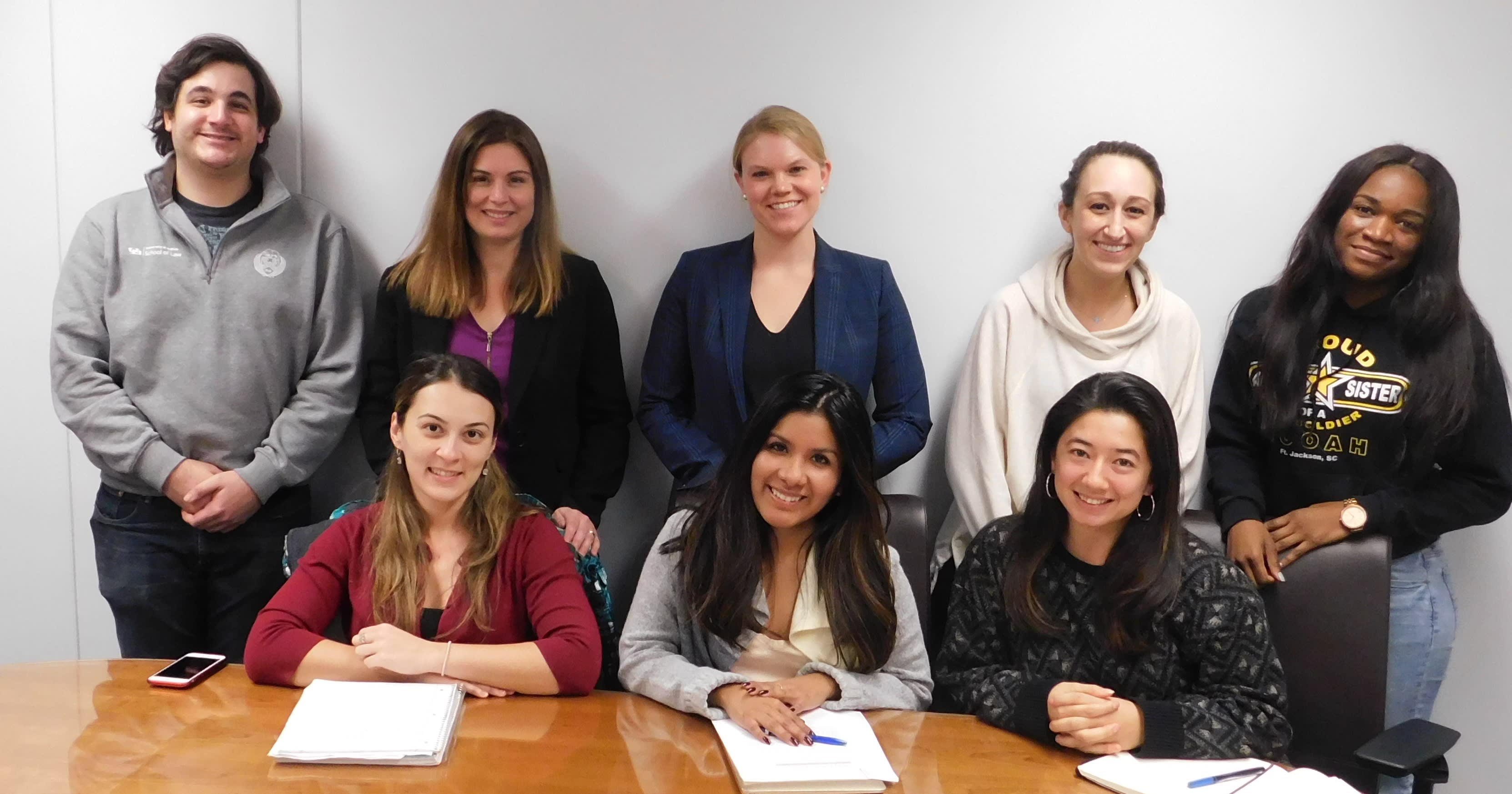US-Mexico Border Law Clinic
This year, hundreds of thousands of refugees fleeing violence in Central America will cross the U.S.-Mexico border, seeking asylum. Many of these refugees are parents, who have left their homes in Guatemala, El Salvador, and Honduras, to protect their children from kidnapping, gang conscription, and sexual assault.
The U.S. accepts immigrants who cannot return to their home country for fear of persecution for race, religion, nationality, membership in a particular social group or political opinion. But the asylum process is lengthy and backlogged. Refuge is not guaranteed. Some applicants wait years.
Previously, most families who could prove they met the basic eligibility requirements for asylum were released to fight their cases. After a brief, disastrous attempt to separate parents from their children at the border in the summer of 2018, the Trump Administration has proposed new rules that would keep families with children detained indefinitely.
The facts:
- South Texas Family Residential Center is the largest detention center in the country. It is for-profit and contracted by ICE to house women and children.
- Maximum capacity is 2,400 which is more than half the size of the town where it is located (Dilley, Texas).
- Average Stay: 20 days
- Average number of immigrants that come in daily: 110
- In fiscal year 2018, 25,000 immigrants came to the center.
- 90% of those seeking asylum will pass the initial asylum screening, but they will need legal representation to ultimately prevail on their claim of asylum.
- 95% will lose their cases without the assistance of an attorney; with an attorney, almost 50% will win
In January 2019, UB School of Law #UBLawResponds student attorneys will travel to Dilley with Professor Nicole Hallett to provide pro-bono representation in partnership with the CARA Family Detention Pro Bono Project. They will be accompanied by other UB students who are translators and enrolled in the MSW program.
A donation of any size can help us defray the cost of travel for the #UBLawResponds team to Dilley. Thank you for your generosity!
US Mexico Border Clinic - Student Attorney & Translator Team
Standing (L-R): Charles Terranova '20; Professor Nicole Hallett, Rosellen Marohn '20; Heather Kimmins '20; Deonna Jones '19
Seated (L-R): Dijana Savija (PhD '19); Sarah Grimaldi JD/MA '20; Leighann Ramierz JD/MSW '19 Not Pictured: Teresa Watson (MSW '19)

$7
Days
7 - the number of days #UBLawResponds student attorneys will be in Dilley, Texas providing pro-bono access to legal help through CARA Family Detention Pro Bono Project.
$20
Average stay
20 days - the average number of days women and children are held in the South Texas Residential Center.
$95
Cases lost
95% - the number of immigrants who will LOSE their asylum case without the help of an attorney.
$110
Number of new people
There are 110 new immigrants brought to the detention center each day.
$550
Flights
The average cost of a flight from Buffalo to San Antonio, Texas to send a #UBLawResponds student attorney to provide pro bono legal services.
$1,100
Women and children detained
At any given time, there are 1100 women and children detained at the center.
$2,400
Maximum Capacity
The maximum number of women and children who can be housed at the Detention Center at any given time.
$25,000
Immigrants through the Center
In fiscal year 2018, 25,000 immigrants have already come through the doors of the South Texas Family Detention Center.



